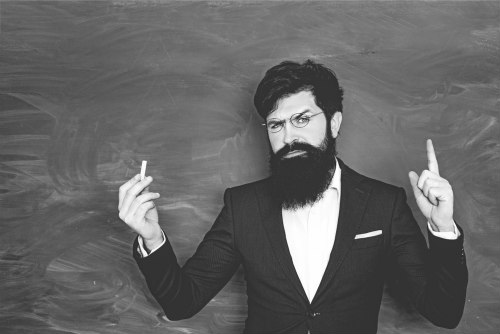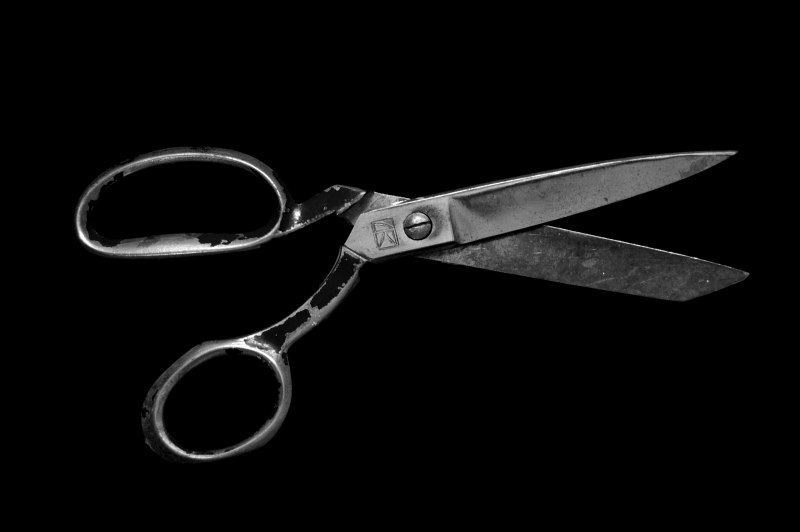
The Problem with Classical Education Part 1: Are Classical Educators Proud and Elitist?
Some of you may have read the recent (9/19) cover article by Dr. Louis Markos published in Christianity Today entitled “The Rise of the Bible-Teaching, Plato-Loving, Homeschool Elitists.”
The title certainly piques one’s interest, as does the subtitle: “How evangelicals are becoming the new champions of the pagan classics.” I like the article very much (indeed, I am quoted in it), but I can’t say I like the title. The article really doesn’t address the charge that there is elitism among classical educators, and the article discusses classical schools as much as, if not more than, classical homeschoolers. That said, the article is very well worth reading (though currently one cannot read the full article on the Christianity Today website without a paid subscription).
Are classical educators elitist? Are their children? Some think so.
I have a friend, Ashley*, now a classical educator, who was once a student in our local classical school. Her mother approached her as she began ninth grade and said, “Now that you are in high school, your grades and GPA will be recorded and seen by colleges when you apply–so you should work hard to keep it high.” To which Ashley replied, “So I can be better than other people?”
Ashley, as a classically-educated ninth-grader, had been taught that education was for human flourishing and an offering and gift for every human being. At her classical school “grades” were downplayed and growth in virtue was played up. Perhaps she had grown in virtues of humility, industry, temperance, and love for truth. Now she was told it was time to….compete. To her credit–and virtue–she resisted.
This anecdote illustrates not only the predicament of modern grading and testing practices but the criticism that classical educators are elitist. Grading does foster competition and competition creates winners and losers and winners are often boastful and proud. Ashley sensed this and wanted out of the game.
The irony is that while most classical educators regard education as largely consisting of the cultivation of virtue and humanity, their students do happen to excel on the SAT and other testing instruments. In other words, classical students are in the game, and they tend to score quite high.
Now I can state this with one attitude or another. I can state this with gratitude and humility, and even with some concern, because an SAT score hardly represents a student’s full education. Or I can trumpet this fact every chance I get with a triumphant smile bordering on a sneer.
There is some good evidence that classically-educated students excel on standardized tests, and very well in college. This has been documented by the Association of Classical Christian Schools through a long, expensive, third-party study that tracked classically-educated students over many years. Students in ACCS schools score higher on the SAT than students in every other school category, including independent, private schools. See here.
How does one even report this fact without being charged with pride or elitism? In this polarized political climate, we are all skilled at sniffing out arrogance and pride. We are generally suspicious of one’s motives and on the lookout for various forms of hubris and privilege.
If the mere gathering of facts by the ACCS is hubris, then there is no conversation to be had, and we will stay in our corners, as our political and educational tribalism increases.
On the other hand, when pride does raise its ugly head, it should be called out, and the proud should repent.
I am a classical educator, and an ardent advocate for the renewal of classical education. I have been humbled by my experience over the last 22 years in the renewal, but I am also tempted to pride at times. Let me, in what follows, try to describe why this is the case. Let me also try to tell you when I think the charge of elitism has merit, and when it does not. I begin with a little history of the renewal of classical education to give you context. Much of what has happened has humbled us; some of what has transpired tempts us to vainglory.
I joined the renewal of classical education in the United States in 1997, when I unexpectedly found myself the founding headmaster of a small classical school in central Pennsylvania. I was a headmaster for ten years until I left to lead Classical Academic Press full-time. The ride from that first day on the job as a headmaster has been wild to say the least— like riding a tiger.
It has been an exhilarating, and often exhausting, journey. There has been much gladness and a good deal to celebrate. There has also been noted sadness, disappointment, and folly. Like all forms of education, classical education is a human enterprise and its renewal has been human too.
We can compare the recent recovery of classical education as a bridge-building endeavor. Over the last 30+ years we have managed to construct something like swinging rope bridge back to this tradition of education. It is wobbly and narrow. A new generation is now at work on this bridge and rebuilding and widening it with sturdier wood. The next generation, we hope, will rebuild it with stone and greatly increase the traffic back and forth. For the time being we continue to hold on tight.
Over the last 30 years, we have encountered a particular set of challenges, a few of which I will recount below. Please note that when I use the word “we” and “our” I don’t mean to imply that all or most classical educators are in view. I often have myself and many of my friends in view. There is a wide range of people engaging in the recovery of classical education today, including a growing segment of those serving the disadvantaged in our urban centers, as well as those serving in other continents.
The first difficulty is simple: We have tried to give what we don’t have. How do we pass on a meaningful liberal arts education that we don’t have ourselves? You can imagine the gaps, mistakes, and occasional folly to which this leads. You can imagine, perhaps, how imperfect and fumbling such a recovery must be. How do we teach Latin properly to our students when there is a great shortage of qualified Latin teachers? Logic? Rhetoric? The truth is, we often started to learn these arts ourselves while teaching our children. Generally, this nonetheless proved beneficial and good (though not always!) but it’s true also that many students were not taught these arts very well, especially in the early years of the renewal. It is better now, but we still need many more teachers and parents who are proficient themselves in these liberal arts. This difficulty has humbled us. What cause then for boasting?
So we have not been well-equipped to educate classically, yet we jumped in anyway. Many of us have learned by teaching, and have gradually become proficient or perhaps just sufficient. We have a long way to go, and there are few masters among us. There has also been some failure along the way–students who were taught poorly enough that they now have a distaste for or are indifferent to say Latin, logic, rhetoric, and Shakespeare. The same can be said about our teaching the “Great Books”–lacking deep training in these books means few are able to teach them in a great way. This, too, should humble us.
Another challenge: We have been fully-trained by our own teachers and have become like them (Luke 6:40). This simply means that having been patterned by 20 years of our own conventional education, we find ourselves by default teaching the way our teachers taught us. How does one shake off a pedagogical habit that one does not even recognize? This is another reason why the bridge back to the classical tradition is wobbly. Pedagogically, we are still learning what it means to teach “classically.”** What cause, then, for boasting?
For a long list or reasons too long to mention here, classical educators generally believe that classical education is the best education for their children. Sometimes, however, the way we classical educators criticise modern education has left us vulnerable to a charge of pride and perhaps elitism. Most of us appreciate public education in various ways even while we critique it and none of us (that I know of) would dismiss all other schools as without value. We have also been critical of ourselves. No doubt, sometimes when preaching to the choir we exaggerate our achievements as well as the deficiencies of modern public education. Some of our critics, witnessing this may rightly call a foul.
I argue that there is some good (including classical elements) amidst the bad in our public schools, and there is a great variety of quality among them. I would argue, too, that there is some bad amidst the good in classical schools. The bad that persists in classical schools and homeschools is another difficulty we continue to face. I recall one year as headmaster when I gathered the staff to study how to grow our school “from good to great.” After a few months of self-study, we determined that a “good to great” project at our school was presumptuous–we weren’t really good yet at all. How could we be good at delivering a classical education that we lacked ourselves? We changed the project name to “mediocre to good.” In retrospect, I think we were not even mediocre at that stage. What we attempted was very good; they attempt itself was limited by our ignorance and inexperience. Naturally, looking back it all seems clear: We were not masters of the liberal arts nor the great books. We required students to take too many subjects at a time. We assigned too much homework. We taught Latin and rhetoric badly.
Still, we all had to begin at the beginning, and so we did. We sought in fledgling ways to return to a robust study of grammar (largely through Latin), logic, and rhetoric. We started teaching a collection of “Great Books.” We slowly developed a warm collegiality among students, parents, and teachers. Slowly, we began to notice that through our fledgling efforts many students began to flourish in encouraging ways. Many not only “performed well academically” but displayed an inquisitive spirit and fondness for the books they were reading, the history they were learning, even mathematics. We kept at it.
Our greatest error, however, was to fall prey to a common temptation–to take ourselves too seriously. The temptation is understandable, but nonetheless lethal. We were giving our lifeblood to start these little classical schools, swimming upstream against the strong current of the culture, with tiny budgets, enduring those watching who thought us nostalgic, antiquarian, quixotic, and generally misguided. Noting this crowd of watchful skeptics all around us, perhaps you can understand this temptation to exaggerate the good. We doubled-down to make our schools successful, and sometimes we were animated by the prospect of proving the skeptics wrong. We all know how this works: Success (even when mediocre success) can be one’s downfall.
Chesterton says a man should take his mission but not himself seriously. He says angels can fly because they take themselves lightly. He quips that the devil fell from the force of gravity. Once we become grave, somber, and serious about ourselves we are done for. The Scriptures teach that “God opposes the proud” (Proverbs 3:34) and therefore any classical educator who becomes grave and proud on account of his success will be divinely opposed and then fall.
How do we fall? We become calcified, triumphant, defensive, easily offended, and joyless. We become serious, exacting, and critical of spirit. Schools that trumpet the superiority of the classical tradition with a brittle, dour tone will often start to dwindle, and good work and ideals will be spoiled. If the school atmosphere becomes smug and somber, fewer people wish to continue and fewer wish to come–no matter how strong the curriculum.
I hope the narrative above give you a sense for why and how we classical educators have stumbled as we have engaged the mission to recover classical education. We have reasons to be grateful and gratified, but not boastful and proud. Whenever we have displayed defensiveness, arrogance, condescension, and pride, we are guilty and should repent. Most of us have grown proud at times, and have expressed such pride to others. This is a serious matter that not only injures others but hinders our own work and puts it at risk. When the critics point out such pride–sometimes called “elitist”– their criticism hits the mark.
Let me now turn to some criticisms of elitism that I think miss the mark. Some have called our expressions of enthusiasm for classical education, or reports of academic success among our students as expressions of elitism, as if we classical educators consider ourselves and our children part of a privileged, exclusive class.
The words elite, elitist, and elitism should be clarified. “Elite” normally means “the choice or best of anything.” You can see how this can lead to a boastful attitude of “being the best” or gloating in one’s superior achievement or status. This we can call elitist–defined as “considered superior or best by others or oneself.” Elitism, then, is “consciousness of or pride in belonging to a select or favored group.”
Success—even great success—need not be elitist. One can be a truly great violinist, say, and be humble and grateful. An elite violinist (one of the very best) need not be full of pride and display an “elitist attitude.” We, in fact, admire elite athletes, musicians, and artists, without automatically charging them with pride and arrogance.
Therefore, if a classical school has (as one example) the highest SAT scores in a region, that in itself ought not lead to a charge of elitism. These students may be elite students in the sense of performing very well (or the best in their region) on these tests, but without being proud and condescending, or wishing to exclude or be better than others. The same could be said of the parents and teachers. Certainly, no critic should rejoice to see these students perform worse. Certainly, no student, parent, or teacher should boast and brag on account of something like an SAT score.
Sometimes the charge of elitism seems to specify that classical education is preserved only for the wealthy and well-educated “elite” who can afford and provide such an education. This charge has some historical merit, dating all the way back to the Greeks and Romans who made use of slavery at times to ensure their own leisure and study. With the advent of Christianity, this practice was curtailed and education was gradually made available to virtually all (with some sad exceptions). Today, however, classical education is not the privilege of the wealthy only. While there are classical schools that serve a majority of upper middle and upper income families (like so many private schools in general), most schools serve a majority of middle income families who sacrifice greatly to send their children to these schools. Many thousands of middle-class homeschooling mothers have left the workplace to teach their children, forgoing a great deal of family income and personal accolades. There is a growing number of classical schools serving the urban poor. If the charge of “elitism” means “only for us wealthy folks”–well you won’t find many wealthy among us.
In my role as a consultant, I have traveled to more than 50 classical schools, and I speak and cavort about at some 10 classical school and homeschool conferences each year. In these places, I do encounter some pride among classical educators and parents. They are, however, a very small minority in my experience. The great majority of those coming into the classical tradition of education are humbled by it, the way one is humbled upon entering the New York Metropolitan Museum of Art with its permanent collection of more than 2 million works of art. The tradition of the liberal arts and the Great Books is dazzling, deep, long, and wide, and will never be mastered. Entering this tradition, like entering the museum, one feels small. Anyone who boasts that she has “got the Met” is delusional. Anyone who boasts she has “got classical education” is the same. It can’t be gotten, but only engaged.
I conclude, therefore, that sometimes we classical educators have displayed pride and an elitist or “superior” attitude. Please forgive us. Sometimes, however, the critics have charged us with elitism whenever we (or others) note the achievements of our students or the growth of the classical education renewal in general. Let us all forgive one another, turn from our pride, and truly educate the next generation.
In my next article, I will address the charge that classical education is largely western, white, male, and European, and therefore not suited to those outside of this tradition. Until then, I welcome your comments and criticism of this article.
*Ashley is not her real name. She is real, though, and an excellent educator.
** We have been working hard to learn what it means to teach “classically” and well. The annual conferences of the ACCS, SCL and the Circe Institute, provide helpful training as does ClassicalU–an online teacher training platform our company has developed.











